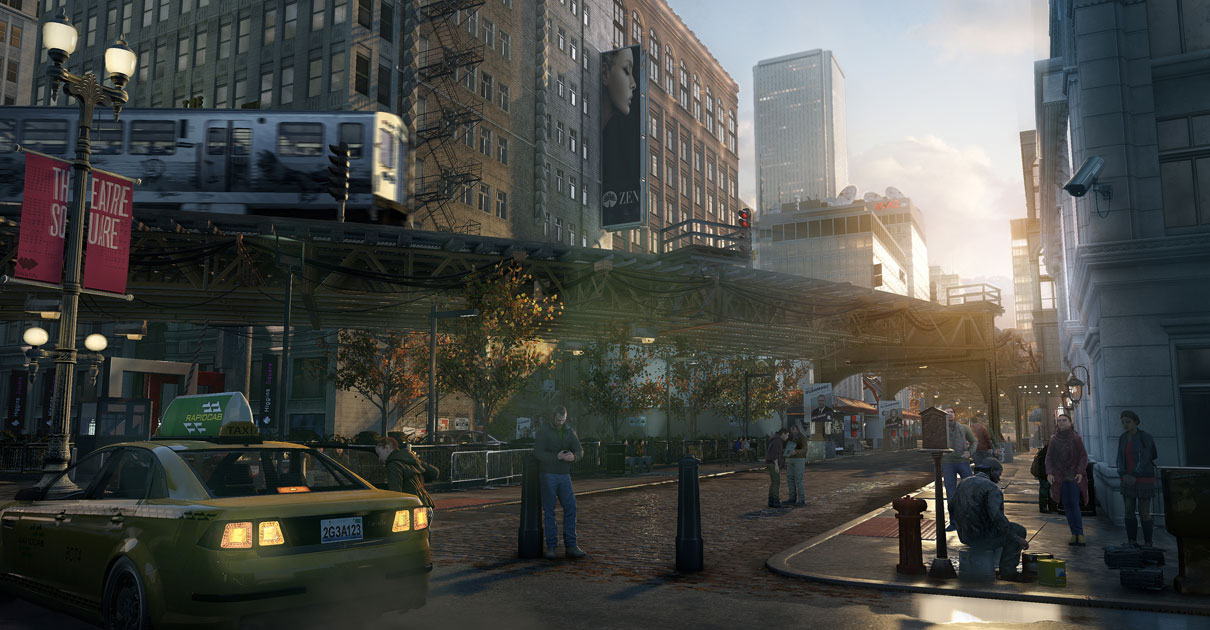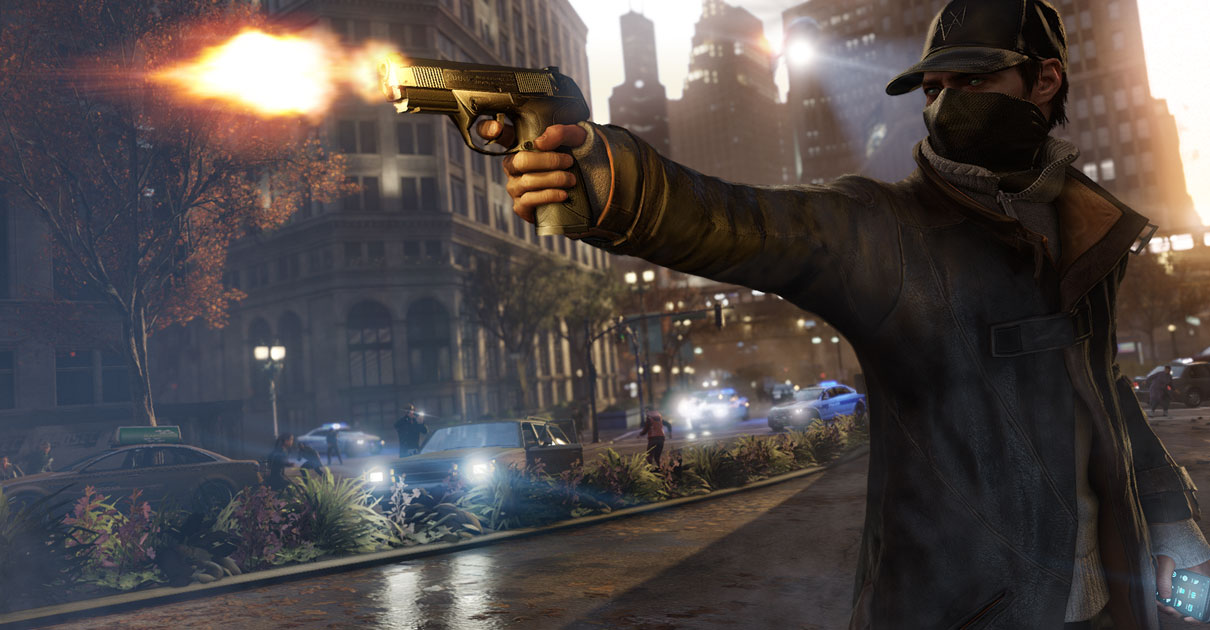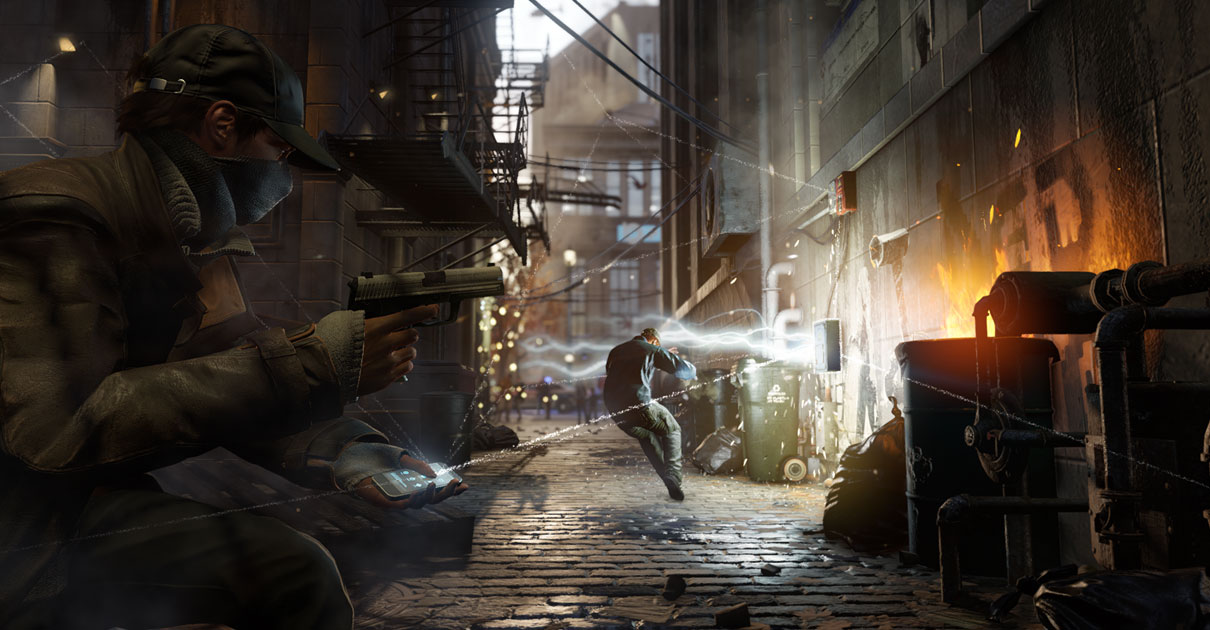A quick look at what Watch Dogs is all about.
Within these past few weeks, I have been slowly making my way through Ubisoft’s latest open-world adventure, Watch Dogs. Initially announced at E3 2012, the game’s long development cycle has been filled with much controversy, with the company admitting that they needed to scale the game’s visuals back in order to match performance quotas. The game’s story follows a hacker by the name of Aiden Pearce, who crusades through a fictional Chicago in an attempt to keep his family safe. In the early part of the game, he gains access to the ctOS – Chicago’s central operating system that controls everything in the city, including traffic signals, ATM machines, bridges, and surveillance cameras – which of course leads him to all sorts of trouble. I have played through about two dozen hours of Watch Dogs at this point, which includes the entire main story and several side missions. My experience has been mostly positive, though there are some serious flaws that are worth noting.

Watch Dogs' Chicago is wonderfully realized.
Firstly, it is important to note that Watch Dogs does not redefine the open-world sandbox genre. It seemed to me that going into the game, that was the general expectation the public had, undoubtedly due to Ubisoft marketing it as such, at least two years ago. Watch Dogs takes all the conventions of the open-world sandbox game and basically checks off all of the boxes, and does most of them quite well, but improves upon very few of them.
That said, one aspect I really enjoy about Watch Dogs is the hacking. The main hook of this game is that Aiden can hack into almost everything. This includes cell phones from which you can steal ATM codes from, power generators that you could activate to overload, and underground pipes that you can rupture. This adds an extra element of strategy when it comes to Watch Dogs’ driving missions, where you are tasked to either take down a criminal vehicle or escape your pursuers. Activating traffic lights will cause havoc in most intersections, allowing you to deal some damage indirectly to your opponents. Other things like spike strips and street blockers can be activated to help either hurt your foes or escape from your enemies, forcing players to think tactically rather than brute-force their way out of most situations.
Hacking also comes very much in handy when it comes to ground sections. Most missions involve you infiltrating through a base – a usually frustrating endeavor but made much easier thanks to Aiden’s hacking ability. By hacking into the area’s security cameras, you can gain an overhead view of the map and take note of enemy positions, potential cover, and possible vulnerabilities (my favorite being grenades that you can remotely activate right in your enemies’ hands). Though sometimes it may seem ideal to complete these missions without being detected, I felt that going in and shooting the place up was much easier and allowed you to gain more experience points, which can be used to activate new hacking and combat abilities.

It is usually easier to just light them up.
The story itself feels very weak. Certainly, by now you have heard the term “ludonarrative dissonance,” in which a character’s actions contradict his or her ethical code or undermine what the character is attempting to accomplish. Watch Dogs attempts to tell a very sentimental narrative, but the actual gameplay itself is so goofy and unrealistic that it was very difficult to take the story seriously. It also does not help that Aiden Pearce, who is trying to keep his family safe, ends up doing so by absolutely destroying everything in sight. The whole thing seems very ill conceived, and while I can appreciate what the writers were attempting to do here, I do wish they could have taken advantage of the world they created and delivered a much more interesting story rather than opt for a more generic “family” story.
Campaign aside, there are many other things to do in Chicago other than trying to save your family. There are dozens upon dozens of trinkets to collect and side-missions to complete, some more interesting than others. Two of my favorites are actually minigames unlocked pretty much from the get-go. The first one is NVZN, which is a virtual-reality shooting game that has you shoot virtual aliens around the Chicago landscape. Another one is actually a collection of different scenarios called “Digital Trips,” which are essentially drugs that can take you on strange adventures – like an alternate dimension of Chicago in hell. Unfortunately, the main side-missions involve just more shooting and driving, which are very boring, especially if you have already spent much of your time doing the same things in the main campaign. The multiplayer element is also annoyingly intrusive, but I have not played enough of it to form a conclusion.

Admittedly, the game gets repetitive after a while.
And so that is my experience with Watch Dogs thus far: certainly disappointing, but still plenty of fun. The franchise is far from reaching its potential, and I can only hope that Ubisoft will continue to improve upon the formula and take full advantage of the fascinating universe they managed to create.
Watch Dogs is available on Xbox 360, Xbox One, PlayStation 3, PlayStation 4, and PC now, and on Wii U later this year.
![Amazing Spider-Man Finale Features New [SPOILER] Costume](../../../../../../assets1.ignimgs.com/2018/06/01/untitled-br-1527892808294_small.jpg)